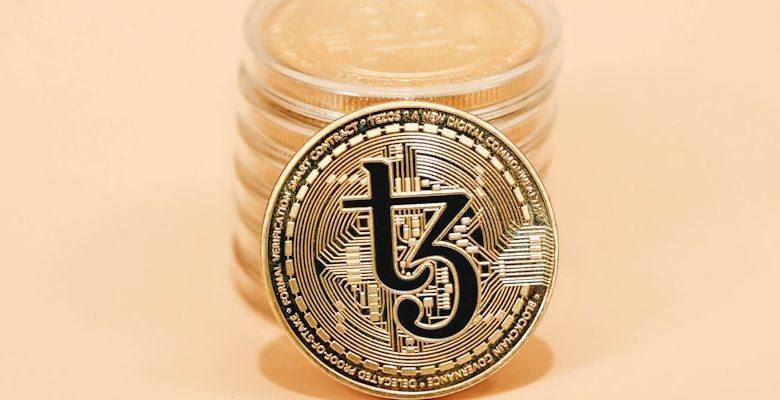How Decentralization Enhances Blockchain Security

- Understanding the basics of decentralization in blockchain technology
- The role of decentralization in ensuring security in blockchain networks
- Exploring the benefits of decentralization for blockchain security
- Challenges and solutions in implementing decentralized security measures in blockchain
- Case studies demonstrating the effectiveness of decentralization in blockchain security
- Future implications of decentralization for enhancing blockchain security
Understanding the basics of decentralization in blockchain technology
Decentralization in blockchain technology refers to the distribution of power and control away from a central authority. In a decentralized system, there is no single point of failure, making it more resilient to attacks and censorship. This is achieved through a network of nodes that work together to validate and record transactions on the blockchain.
One of the key benefits of decentralization is increased security. By spreading out control among multiple nodes, it becomes much more difficult for malicious actors to manipulate the system. This is in contrast to centralized systems, where a single point of failure can compromise the entire network.
Decentralization also enhances transparency in blockchain technology. Since the entire transaction history is recorded on a public ledger that is distributed among all nodes in the network, it is nearly impossible to alter or erase data without the consensus of the majority of nodes. This makes blockchain technology more trustworthy and reliable.
Furthermore, decentralization promotes trust among users. With no central authority controlling the system, users can have confidence that their transactions are secure and that the network operates fairly. This trust is essential for the widespread adoption of blockchain technology in various industries.
In conclusion, understanding the basics of decentralization in blockchain technology is crucial for grasping how it enhances security. By distributing power, increasing transparency, and fostering trust, decentralization plays a vital role in making blockchain technology more secure and reliable for users.
The role of decentralization in ensuring security in blockchain networks
Decentralization plays a crucial role in ensuring security in blockchain networks. By distributing control and authority across a network of nodes, rather than relying on a central authority, blockchain networks become more resilient to attacks and manipulation. This distributed nature makes it extremely difficult for malicious actors to compromise the network, as they would need to control a majority of the nodes simultaneously.
Furthermore, decentralization helps to prevent single points of failure, as there is no central server or repository that, if compromised, could bring down the entire network. Instead, data is stored across multiple nodes, making it virtually impossible for hackers to corrupt or alter the information. This redundancy and distribution of data enhance the security and integrity of the blockchain network.
Another benefit of decentralization in blockchain security is the transparency it provides. Since all transactions are recorded on a public ledger that is accessible to all network participants, any attempt to alter the data would be immediately detected. This transparency acts as a deterrent to malicious behavior, as it becomes much more challenging to engage in fraudulent activities without being caught.
Exploring the benefits of decentralization for blockchain security
Exploring the advantages of decentralization in enhancing blockchain security is crucial for understanding the robustness of this technology. By distributing control and decision-making across a network of nodes, decentralization minimizes the risk of a single point of failure, making it more challenging for malicious actors to compromise the system.
One of the key benefits of decentralization for blockchain security is the increased transparency it offers. With multiple nodes verifying transactions and reaching a consensus, the integrity of the data on the blockchain is maintained. This transparency acts as a deterrent to fraudulent activities, as any attempt to manipulate the data would be quickly identified and rejected by the network.
Furthermore, decentralization helps to enhance the immutability of the blockchain. Since each block contains a reference to the previous block, altering a single block would require changing all subsequent blocks, which is practically impossible due to the distributed nature of the network. This makes the blockchain resistant to tampering and ensures the integrity of the data stored on it.
Challenges and solutions in implementing decentralized security measures in blockchain
One of the main challenges in implementing decentralized security measures in blockchain is the complexity of managing multiple nodes across a distributed network. This complexity can make it difficult to ensure consistent security protocols are being followed by all nodes, increasing the risk of vulnerabilities being exploited. However, there are solutions that can help address these challenges and enhance security in a decentralized environment.
One solution is the use of consensus algorithms, such as Proof of Work (PoW) or Proof of Stake (PoS), to validate transactions and secure the network. Consensus algorithms help ensure that all nodes on the network agree on the validity of transactions, reducing the risk of malicious actors manipulating the system. By implementing a robust consensus algorithm, blockchain networks can enhance their security measures and protect against various threats.
Another solution is the use of cryptographic techniques, such as public-key cryptography, to secure data transmission and storage on the blockchain. Cryptographic techniques help encrypt sensitive information, making it difficult for unauthorized users to access or alter data. By incorporating strong cryptographic measures into their security protocols, blockchain networks can significantly reduce the risk of data breaches and unauthorized access.
In addition to consensus algorithms and cryptographic techniques, regular security audits and penetration testing can help identify and address potential vulnerabilities in blockchain networks. By conducting thorough security assessments, organizations can proactively identify weaknesses in their security measures and take steps to strengthen their defenses. Regular security audits can help ensure that blockchain networks remain secure and resilient in the face of evolving threats.
Overall, while implementing decentralized security measures in blockchain presents challenges, there are effective solutions available to enhance security and protect against various threats. By leveraging consensus algorithms, cryptographic techniques, and regular security audits, organizations can strengthen their security posture and build trust in their blockchain networks. Through proactive security measures and continuous monitoring, blockchain networks can mitigate risks and safeguard sensitive data effectively.
Case studies demonstrating the effectiveness of decentralization in blockchain security
Decentralization has been proven to significantly enhance blockchain security through various case studies. These real-world examples demonstrate the effectiveness of distributing control and authority across a network of nodes rather than relying on a single centralized entity. By decentralizing decision-making processes and data storage, blockchain networks become more resilient to attacks and manipulation.
One notable case study is the infamous DAO hack in 2016, where a vulnerability in a decentralized autonomous organization allowed an attacker to siphon off millions of dollars worth of cryptocurrency. This incident highlighted the importance of decentralization in mitigating risks and preventing single points of failure. By spreading out control among multiple nodes, the impact of such attacks can be minimized, and the network can continue to operate securely.
Another compelling example is the successful implementation of decentralized exchanges (DEX) in the blockchain space. Unlike traditional centralized exchanges that are susceptible to hacks and insider manipulation, DEXs operate on a peer-to-peer basis, allowing users to trade directly with one another without the need for an intermediary. This decentralized approach not only enhances security but also promotes trust and transparency in the trading process.
Furthermore, the use of decentralized consensus mechanisms such as proof of work (PoW) and proof of stake (PoS) has been instrumental in securing blockchain networks against malicious actors. These consensus algorithms rely on the collective agreement of network participants to validate transactions and secure the network, making it extremely difficult for any single entity to compromise the system.
Overall, these case studies underscore the critical role that decentralization plays in enhancing blockchain security. By distributing power and control among a network of nodes, blockchain networks can achieve a higher level of security, trust, and transparency, ultimately paving the way for the widespread adoption of this revolutionary technology.
Future implications of decentralization for enhancing blockchain security
One of the key future implications of decentralization for enhancing blockchain security is the distribution of power and control. By dispersing authority among a network of nodes rather than relying on a central authority, blockchain becomes less susceptible to single points of failure. This distributed nature makes it extremely difficult for hackers to compromise the system, as they would need to attack multiple nodes simultaneously to have any significant impact.
Another important implication is the increased transparency that decentralization brings to blockchain networks. With all transactions being recorded on a public ledger that is accessible to all participants, fraudulent activities are easily detectable. This transparency not only acts as a deterrent to potential wrongdoers but also allows for quicker identification and resolution of security breaches.
Furthermore, decentralization leads to improved data integrity and immutability within blockchain systems. Since all transactions are verified by consensus among nodes, the risk of data manipulation or tampering is significantly reduced. This ensures that once information is recorded on the blockchain, it cannot be altered without the consensus of the majority of network participants.
In conclusion, the future implications of decentralization for enhancing blockchain security are vast and promising. By embracing this distributed approach, blockchain networks can significantly improve their resilience to cyber threats, enhance transparency, and ensure the integrity of data stored on the blockchain. As the technology continues to evolve, decentralization will play a crucial role in safeguarding the security and reliability of blockchain systems.



